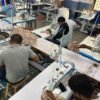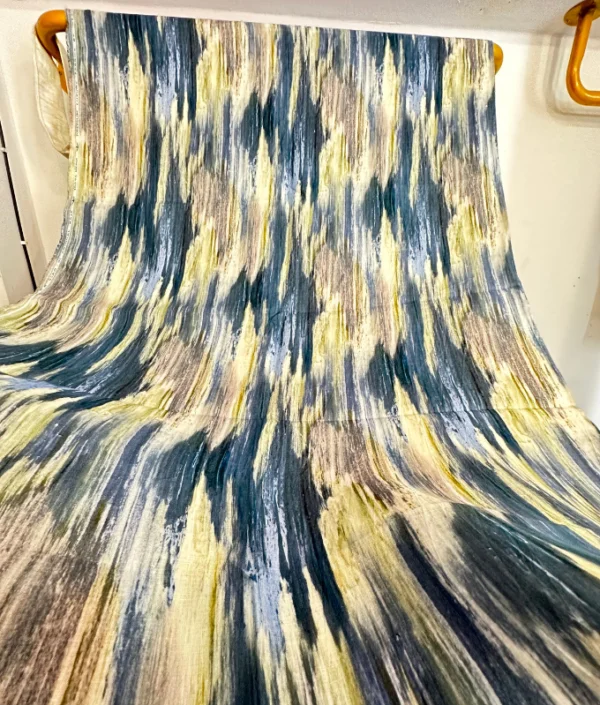How Hemp Fabric is Revolutionizing Eco-Friendly Clothing
In an age where fast fashion continues to pollute our environment and deplete natural resources, the fashion industry is undergoing a much-needed transformation. Consumers are increasingly searching for sustainable and ethical alternatives that don’t compromise on style or comfort. One material that is gaining global attention is hemp fabric, renowned for its durability, minimal environmental impact, and versatility. As the demand for eco-conscious fashion grows, hemp textiles have emerged as a frontrunner in the sustainability movement. Known for requiring less water, fewer pesticides, and enriching the soil it grows in, fabric hemp is proving to be a game-changer. From luxury designers to emerging eco-brands, the shift toward hemp apparel reflects a broader commitment to responsible fashion. What is Hemp Fabric? Hemp fabric is made from the fibers of the stalks of the Cannabis sativa plant. Unlike its psychoactive cousin used for recreational purposes, industrial hemp is specifically cultivated for its strong and fibrous stalks. The process of turning hemp stalks into usable textile involves retting, decorticating, and spinning, all of which are significantly less resource-intensive compared to cotton. In addition to being incredibly strong, hemp fabric is also highly breathable and becomes softer with each wash. It offers natural UV protection and is highly resistant to mold and mildew, making it ideal for everything from T-shirts and trousers to bedsheets and towels. Environmental Benefits of Hemp Textiles One of the key reasons hemp textiles are making headlines in sustainable fashion is due to their minimal environmental footprint. Unlike cotton, which consumes vast quantities of water and chemicals, hemp fabric requires 50% less water and can be grown with little to no pesticides. It also improves soil health and helps in carbon sequestration, making it one of the few crops that actually gives back to the environment. Moreover, fabric hemp is biodegradable and compostable, ensuring that discarded garments don’t end up clogging landfills or oceans. This is in stark contrast to synthetic fabrics, which can take centuries to break down. Durability and Comfort If you think sustainability compromises durability or comfort, hemp clothing will prove you wrong. Stronger than cotton and softer with each wash, hemp apparel is built to last. This means fewer purchases over time, which contributes to a reduction in overall consumption and waste. It’s breathable in the summer and insulating in the winter, making it a year-round staple. Thanks to advancements in textile technology, hemp textiles today can be blended with other fibers like organic cotton or silk to achieve different textures and finishes, further expanding its versatility in fashion design. Hemp Apparel in Fashion: Growing Trends Top designers and ethical brands across the globe are embracing hemp clothing as a sustainable alternative. From high-end runways in Paris to conscious streetwear in Brooklyn, hemp apparel is carving its place in both mainstream and alternative fashion circles. Brands like Patagonia, Levi’s, and Echo Earth are already incorporating hemp fabric into their collections, promoting eco-friendly fashion without sacrificing style. The growing popularity of hemp textiles has also sparked innovation in design. Expect to see breathable hemp denim, soft hemp-blend tees, and even luxurious hemp-silk dresses dominating eco-conscious wardrobes. Health Benefits of Wearing Hemp Clothing Besides being good for the environment, hemp clothing offers several personal health benefits. Its natural antibacterial properties make it perfect for people with sensitive skin or allergies. Unlike synthetic fabrics that trap moisture and bacteria, hemp apparel allows your skin to breathe and stay fresh. It also resists odor buildup, meaning fewer washes are required—yet another win for sustainability. These features make hemp fabric an excellent choice not only for everyday wear but also for athletic and outdoor apparel. Challenges and Future Outlook Despite its numerous benefits, hemp textiles still face certain challenges. Regulatory barriers, especially in countries where hemp cultivation is tightly controlled due to its association with cannabis, have limited its availability. Additionally, the lack of widespread processing infrastructure makes hemp fabric slightly more expensive than traditional materials. However, with increasing consumer awareness and supportive government policies, these barriers are slowly being dismantled. As demand grows, economies of scale will likely bring down production costs, making hemp clothing even more accessible in the near future. Final Thoughts In a world grappling with climate change and environmental degradation, switching to hemp fabric is a conscious step toward a greener future. Its blend of durability, comfort, and sustainability makes hemp textiles a perfect solution for the modern-day consumer looking to align their values with their wardrobe choices. At Echo Earth, we are proud to be part of this revolution, offering you premium-quality hemp apparel that looks good, feels great, and supports the planet. Make the switch today—and wear your values with pride.









